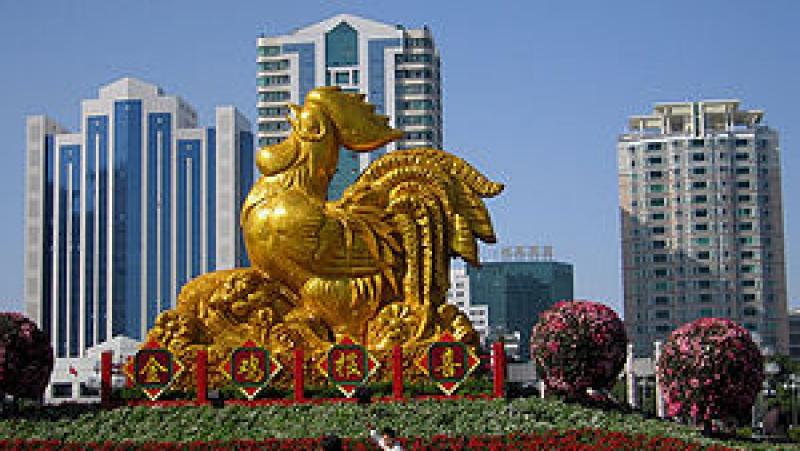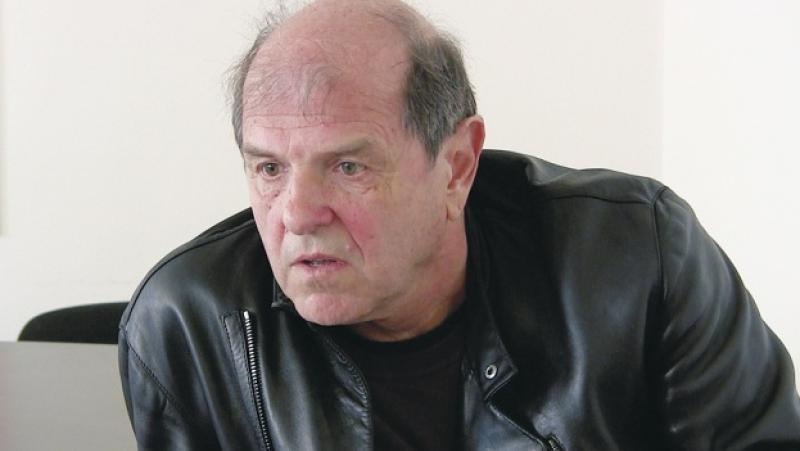/ world today news/ It must be said that the European civilization as a whole is one of the most material and is material in its social essence. The historical subject that stands at its foundation is actually nothing more than an environmentalist spirit – an environmentalist not in the sense of destroying nature, but in the sense of conquering, processing, turning it into an artificial, historically created substance.
In other words, the most important vector of social development of European civilization, both in its feudal and capitalist phases, was the production and accumulation of artificial material substance in the course of a constant attack on nature.
The world still considers the Egyptian pyramids a wonder of the world. But as noted by J. Gimpel, for the period 1050–1350 alone, only France produced and transported more stone than Ancient Egypt in any, even the most intensive, construction of the 3000 years of its history.
In France during this period several million tons of stone were quarried for 300 cathedrals, 500 large churches and several tens of thousands of smaller parish churches. During the Middle Ages in Western Europe, a church numbered an average of 200 people. A huge number of monasteries and mills, castles and mines – this is the beginning of European civilization in the 11th-13th centuries.
The constant material denaturization of Nature is carried out by European civilization in the name of the spiritual – the Divine. The constant and daily substantialization of reality was dictated by a certain religious, spiritual attitude towards this reality. Matter, as it were, stretched, aspired to the Spirit (cf.: everyday life aspiring to luxury). The apotheosis of this mass of substance, directed upwards, towards the Absolute, towards the Ideal, is the Gothic. In this sense European civilization is Gothic; in Gothic she is given her substantial code, a cipher.
Yet, growing out of European civilization, capitalism has produced such a volume of substance that immeasurably exceeds the substantial potential created before it—both in Europe and in the world at large. The substance of capitalism has acquired a mass-everyday dimension, entering and becoming everyday life. Let us recall once again Lev Tikhomirov’s astonishment at the sight of the Swiss and French villages; no need to talk about cities:
„A free space opened up before us at the foot of the Salèves, and we learned that the frontier of France already passes here. That’s a huge amount work amazed me. See the country houses. Stone, perennial. Look at the fields. Each piece is surrounded by a thick high wall, the slopes of the mountains are lined with terraces, and the whole country is divided into pieces surrounded by stone.
At first I did not understand the mystery which all this placed before me, until at last it began to dawn on me that this is property, this is capital, billions upon billions, compared to which the actual labor of the present generation is nothing, worthless.
What is this past work in Russia? Game, smooth fields, there is nothing, no one lives in the grandfather’s house, because it burned down two or three times in the presence of the grandfather himself. What is left of your grandfather? A dress? A cow? But the dress was long worn out, and the cow died. And here this past covers the whole person. Wherever you turn, everywhere is the past, hereditary … And the thought was involuntarily brewing: what kind of revolution will crush this stony past, rooted everywhere, in which everyone lives like clams in a coral reef.
Was it not because the Russians, and then the Soviet people, loved to travel to the West so much that, apart from the feeling of freedom and comfort, apart from the purely practical tasks – personal clothes and rags, material-physical tasks – they, consciously or unconsciously, achieved another purpose, metaphysical: they fell into the Sea of Substance. Bathed in it and subscribed to it – not only physically, but also metaphysically – in what and what the Russian System has always lacked. Namely – material, object-material substance.
It is the Western substance that has taken the place of the Russian god of the subjective materialists of the communist system, who are ready for anything – to slander the West in the press, to spy against it, to lie about it – for one thing only: for the sake of traveling to the Substance from the country (for them) of the “unwashed function”. By serving this function and damaging the world of substance to touch it, they were destroying the only substance they truly possessed—themselves. The dialectic is subjective-materialistic.
In Russia, everything was completely different: not only the huge masses of its population, not only the oppressed classes, but also the lower and middle nobility, the disaffected, and then the intelligentsia, were lifeless here. Here the main trend was the triumph of the everyday as the everyday minimum of social reproduction. And if in the West from the 19th century everyday life is attracted by luxury, in Russia the opposite process is more noticeable.
Having arisen, luxury here most often does not stay “on the level” for long, it gradually slips into everyday life and begins to live according to its laws. This is manifested in various ways: in the impoverishment and simplification of the noble estates, in how the raznochins become inveterate drunkards, in the obscurity of the Russian intelligentsia, its domestic disorder, behind which the cultural-psychological disorder is revealed – in their heads, in the behavior . Luxury descending or lowered to everyday life, the pursuit of it is perhaps the main trend in the relationship between luxury and everyday life in Russia.
However, at the end of the 19th and the beginning of the 20th centuries, for the first time in its history in any part of its social space, Russia was able to accumulate a certain amount of material substance, organize it and create, albeit for a limited social contingent – lawyers, professors, middle-class clerks, etc. .. – the structure of everyday bourgeois life.
But all this – these people, this way of life, this substance – exists for a historically brief moment (“there is only one moment, hold on to it”) and is not simply blown away by the wind of the Russian revolution, in the form of which another Russian turmoil appeared . All this was destroyed with voluptuous bitterness and malice.
Who knows, maybe the substance accumulated until then has exceeded the volume that the Russian system allows and needs for its normal functioning. In other words, luxury impermissibly, not in a Russian way, rose above everyday life. And he – “under the yoke of the wicked Moon” – “was named”. Sickle (for reproductive organs) and Hammer (for skulls).
„Capitalism is, so to speak, unconditional surrender to things, but without thinking about the consequences and not seeing anything behind them. For ordinary capitalism a given thing (product or production) is not, as for the Puritans, what it itself becomes and wants to become; if the thing is in itself, if it is the thing itself, then this is how Satan enters the soul of the possessed, who does not know it, or how the possessed, without knowing it, is Satan himself. Self-denial, which in Calvinism was an affirmation of God, was a kind of unattainable ideal; it may be the work of certain individuals capable of imposing on others the values with which they identify, but in each such case the exception proved the rule.’ George Batay.
Translation: EU
Vote with ballot No. 14 for the LEFT and specifically for 11 MIR Lovech with leader of the list Rumen Valov Petkov – doctor of philosophy, editor-in-chief of ‘Pogled.Info’ and in 25 MIR-Sofia with preferential No. 105. Tell your friends in Lovech and Sofia who to support!?
Subscribe to our YouTube channel:
and for the channel or in Telegram:
#Prof #Andrey #Fursov #Item #place #Russian #System #secret #religion #West

**Considering the author’s definition of “material denaturization of Nature”, what ethical implications arise when a society prioritizes material pursuits over environmental sustainability?**
This article raises compelling points about the relationship between materialism, spirituality, and different socio-political systems. Here are some open-ended questions based on the text, divided into thematic sections, to spark discussion and encourage diverse perspectives:
**I. Materialism and Civilization:**
* **How does the author define “material denaturization of Nature,” and what are the implications of this process for both individual and societal well-being?**
* **The author argues that European civilization is “Gothic” due to its pursuit of the substantial. Do you agree with this characterization? What are the strengths and weaknesses of emphasizing materiality in the development of a civilization?**
* **The article contrasts the material realities of Russia and the West. To what extent do these material differences influence cultural values and social structures?**
* **How does capitalism, according to the author, differ from previous forms of social organization in its relationship to material accumulation? What are the potential benefits and drawbacks of this difference?**
**II. Spirituality and Materialism:**
* **The author suggests that European civilization’s pursuit of material substance is driven by “spiritual” aspirations. Can materialism and spirituality truly coexist, or are they fundamentally opposed forces?**
* **What role does religion play in shaping a society’s attitude towards material wealth? How have different religious traditions approached the relationship between the spiritual and the material?**
**III. Russia and the West: A Comparative Analysis:**
* **What is the significance of the author’s observation that Russians were drawn to the “Sea of Substance” in the West? What does this reveal about the desires and aspirations of Russian society?**
* **The article claims that luxury in Russia tends to “descend” into everyday life, while in the West it remains distinct. How do these different trajectories illustrate broader cultural and historical differences between Russia and the West?**
* **The author suggests that the Russian Revolution was a response to the disruptive influence of Western materialism. Do you agree with this interpretation? What alternative explanations can be offered for the events of the Russian Revolution?**
**IV. The “Sickle and Hammer”: Ideology and Materiality:**
* **What is the author’s interpretation of the “Sickle and Hammer” metaphor, and how does it connect to the themes of materialism and revolution?**
* **The article concludes with a quotation from George Bataille. How does Bataille’s perspective on capitalism complement or challenge the author’s arguments?**
**V. Open-Ended Questions:**
* **What are the potential consequences of allowing material accumulation to exceed the needs of a given society?**
* **How can individuals and societies achieve a balance between material prosperity and spiritual fulfillment?**
* **What lessons can be drawn from the historical experiences of Russia and the West in terms of navigating the complex relationship between materialism and social development?**
These open-ended questions are meant to encourage a thoughtful and nuanced discussion about the intricate interplay of materialism, spirituality, and social structures.

